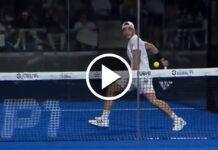The Premier Padel circuit is currently facing a significant crisis as the top 100 players in the world have chosen to boycott the Gijon P2 event. This unprecedented move has brought to light several underlying issues within the sport.
The primary reason for the boycott is the players’ dissatisfaction with the International Federation of Padel’s (FIP) unilateral decisions and Premier Padel’s perceived lack of regulation. The players argue that the current system lacks fairness, transparency, and professionalism. They are calling for greater participation in decision-making processes to ensure that their concerns are addressed and their voices are heard.
One of the main points of contention is the recent modification to the ranking system. The FIP changed the ranking system in the middle of the 2025 season, resulting in tournaments of the same category receiving different points based on their dates. This change has been criticized for creating an unfair competitive environment.
Additionally, the players have expressed concerns about the conflict of interest within the FIP, as it is both responsible for regulations and a partner of Premier Padel. This dual role has led to a lack of neutrality and clear guidelines, further fueling the players’ frustration.
The boycott has drawn attention to the growing disputes between padel players and the regulatory bodies, highlighting the need for a more open and equitable competitive environment. As the sport strives for Olympic classification, it is crucial for the governing bodies to address these issues and work towards a resolution that benefits all stakeholders.
The situation remains uncertain, and it will be interesting to see how the governing bodies respond to the players’ demands and whether any changes are made to ease their concerns. The outcome of this conflict could have a significant impact on the future of professional padel.
































